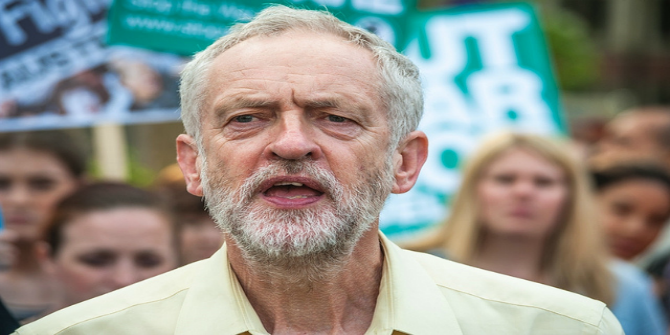In the third of our series of posts looking ahead to the Scottish independence referendum, Craig McAngus looks at the attitudes of women and highlights that far from being impressed by the aggressive politics of the debate thus far, many women (and indeed men) are seeking a more mature discussion about the pros and cons of both potential outcomes.
Although certainly not representing a gender equality revolution, the Scottish government’s recently published white paper lays down a gauntlet to the UK government. There is a deliberate aim to cast Scottish independence as the progressive choice vis-à-vis the status quo, and the proposals to roll out an extension of supply-side of childcare provision is one aspect of this. One of the strategic aims of the document and its proposals is to grab the attention of women in Scotland. However, is Scottish politics able to deliver a debate that women can both relate to and engage with?
The Scottish government will hope that voters, especially women, will take notice of such proposals in order to tip the balance in favour of a Yes vote. However, a recent article in the New Statesman suggests that while women, on the whole, are far from disinterested in the independence debate, there is a growing feeling that the debate is being largely dominated by middle-aged men. Furthermore, a poll reported in The Herald recently suggests that women are still less likely to support independence than men, as things stand.
In an article published in Parliamentary Affairs in 2010, Professor James Mitchell argues that, despite the promise of a fresh start and new politics on the opening of the Scottish parliament, Scottish politics continues to be dominated by an adversarial ‘British’ political culture. With little between them in ideological terms, the ferocious rivalry between Labour and the SNP is almost wholly based on electoral competition and the constitutional question. One does not have to look far to see an example of the intense and visceral animosity between the two parties. Unfortunately, this is unlikely to change given that there is so much at stake in this referendum debate. Indeed, and with the other two main parties drawn into the contest, the debate is only going to get more intense.
It is therefore unsurprising that women (and indeed many men) are put off by this consistent aggression. Even the prominent women in the debate (Nicola Sturgeon, Johann Lamont and Ruth Davidson) are very much cast in the male-norm with regards to their political style. Despite this, the importance of September’s vote will mean that women will not only desire more information, but will actively seek it out. The pro-independence movement has launched its women’s group, Women for Independence, while the pro-UK side has an equivalent organisation. Both organisations will exist to provide information to women in order to help them reach a decision about which future is best for them.
Both of these groups must learn the lessons of the referendum debate. Far from being impressed by the aggressive politics of the debate thus far, many women (and indeed men) are seeking a more mature discussion about the pros and cons of both potential outcomes. It is the democratic duty of the organisations above, as well as the central players in the debate, to positively engage with women in order to properly illuminate the choices that are available to them. It is unlikely that the ferocity of the main debate will be toned down, but the groups aiming to engage with women specifically do have the capacity to lower it to mere background noise. This is crucial if the important issues and policy areas that will affect women disproportionately, such as care policy, can be discussed and debated in a mature way in order to allow voters to come to an informed decision.
Note: This article gives the views of the author, and not the position of the British Politics and Policy blog, nor of the London School of Economics. Please read our comments policy before posting.
About the Author
 Craig McAngus is a Research Fellow at the University of Stirling. He is currently working on a branch of the ESRC’s Future of the UK and Scotland project which looks at whether Scotland can becoming a more gender equal society.
Craig McAngus is a Research Fellow at the University of Stirling. He is currently working on a branch of the ESRC’s Future of the UK and Scotland project which looks at whether Scotland can becoming a more gender equal society.







I am a wildly left-wing Labour Party member and I would say that Ruth Davidson does not conform to the ” the male-norm with regards to .. political style.” When I have seen her in the Scottish Parliament she performs with reason and patience. She is a great asset to the Scottish Conservative Party. I wish we had a dozen like her.